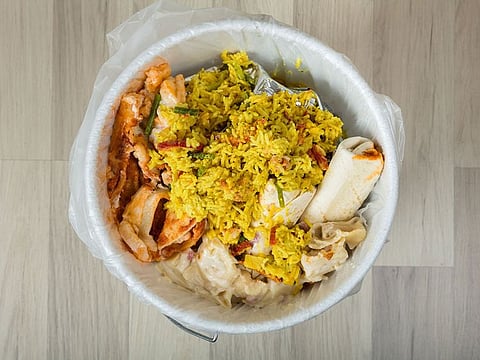Rice, bread and flour top food waste in Saudi Arabia
Annual food waste surpasses 184kg per person; value of waste put at SR40 billion a year

Cairo: Rice, flour and bread account for the highest rates among food items wasted in Saudi Arabia, according to the kingdom’s Ministry of Environment, Water and Agriculture.
Rice leads the food waste with 34 per cent of the total, being a staple on the Saudi table during Ramadan, which began in the kingdom on March 11. Next on the waste list come flour and bread with combined 30 per cent.
With palm dates consumption surging in Saudi Arabia in Ramadan, the waste in the popular fruit amounts to 21.5 per cent, according to the ministry.
Muslims have to abstain from eating and drinking daily from dawn to sunset during the lunar month of Ramadan.
Ramadan is marked by family gatherings and meals after a day-long fast.
Earlier this month, experts at the ministry cited a rise in food waste in Ramadan and offered tips for developing frugal consumption patterns.
Annual food waste surpasses 184kg per person in the kingdom, they said, estimating the overall value of such waste at a staggering SR40 billion per year.
Curbing food waste in Ramadan depends on daily habits in preparing and consuming meals, the experts said, blaming the waste on preparing excessive amounts of food greater than the actual needs. People are urged to only cook the amount of food they need, and distribute the surplus food to those in need through food banks and charitable groups.
Additionally, households are advised to plan their food purchases based on the number of the family members and their needs, avoid having too many types of food in a single meal to head off waste, innovate recipes making use of food leftovers, react rationally to commercials and properly wrap surplus food for reuse.
Sign up for the Daily Briefing
Get the latest news and updates straight to your inbox



